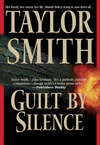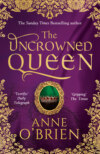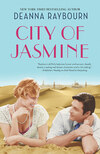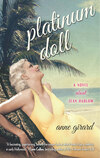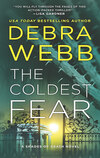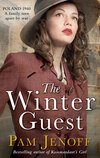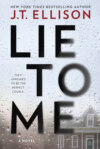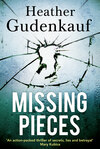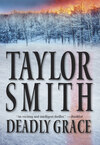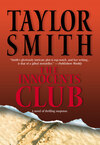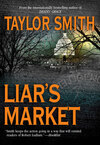Kitabı oku: «Guilt By Silence», sayfa 3
She started to read a few press clippings, but found it impossible to focus on the printed words. The feeling was rising in her again—the gut-wrenching anxiety that she tried to block out by concentrating on Lindsay and the daily effort to rebuild some normalcy in their lives. Why did Paul Chaney have to show up today, after all this time? What kind of game was he playing now? Why would he say it wasn’t an accident when she knew for a fact that it was?
She had told Chaney only part of the truth, of course. He had no idea of her CIA connections nor that the Company, and not just the embassy, had gone over David and Lindsay’s accident with a fine-tooth comb to rule out any possibility of foul play. And although Mariah had been too busy running between hospital rooms to take part herself, someone she trusted absolutely had seen to it that no stone was left unturned in the Company’s investigation of the disaster. No, Mariah thought, the bottom line is that Chaney doesn’t know what he’s talking about.
She leaned back and massaged her temples, then glanced at her watch. Propping her feet on the coffee table, she grabbed the television remote and flicked on the ten o’clock news. As the screen began to glow, two figures came into view—the “CBN Nightly News” anchors. They fit the standard TV-news format. The man, Bob Michaels, was in his mid-forties, telegenic, conservatively dressed, sober. Beverly Chin, by comparison, was younger, more brightly dressed and seated on the right side of the screen, where the eye is naturally drawn. She smiled a great deal, although her face became serious when she read from the TelePrompTer. Her Chinese features and the good looks of the African-American weatherman brought a politically correct racial balance to the news team.
The newscast opened with the latest on the aftermath of a terrorist triple-header that had occurred three days earlier. Forty-seven deaths and scores of injuries had resulted when bombs had exploded simultaneously in London’s Trafalgar Square, Paris’s Eiffel Tower and at the Statue of Liberty in New York. The horrifying brilliance of the attacks—their stunning coordination and the pointed symbolism of the three targets, all objects of intense national pride—was such that dozens of groups had jumped in to claim responsibility and threaten further action if their demands were not met. A coordinated intelligence effort had narrowed the field of probable attackers to one fundamentalist religious group and two “liberation fronts.”
Mariah watched the item closely. Now that the Soviet Union was defunct, she had been assigned a new focus of analysis. She was in the middle of drafting a paper on the arms market for interconnected terrorist groups and she thought she might have uncovered a new supplier with possible links to Libya. There was no evidence of a connection to this ghastly terrorist triple play—not yet, anyway—but she was determined to keep at it, knowing that a coordinated assault like this had to have had strong and experienced backing.
The news report, however, told her nothing she didn’t already know. When it ended, the screen shifted back to the grave features of anchorman Bob Michaels.
“The Cold War may be over, but there seems no end to troubles in the former Soviet Union. There was rioting again today in the streets of Moscow, as another cold Russian winter sets in and food shortages loom large. Correspondent Paul Chaney reports that some cash-strapped Russians may become desperate enough to try to sell the country’s nuclear arsenal.”
Mariah’s heart began to pound. She leaned forward in her seat as the tall, lean figure of Paul Chaney appeared on the screen, standing in front of the State Department building. He was wearing a sport coat and tie instead of the habitual bomber jacket—his concession to the camera. It looked as if the report had been videotaped earlier in the day.
“Since the end of the Cold War, the Russian and American governments have agreed to drastic cuts in nuclear arsenals. Thousands of weapons researchers have seen their funding disappear as the former superpowers cut weapons programs to cash in the promised ‘Peace Dividend,’ freeing up military funds for domestic purposes.
“But there are those who would be willing to pay a high price for these cast-off weapons—and for the experts to operate them. In Vienna, the International Atomic Energy Agency—the IAEA—has been fighting for more power to inspect nuclear weapons sites to ensure that these arsenals are destroyed as promised. The IAEA has also proposed a registry of nuclear scientists to make certain that these specialists don’t auction off their skills to the highest bidder.
“I asked an official here at the State Department why our government has not been more supportive of the IAEA’s efforts.”
The scene shifted to an office, where a white-haired man in a pin-striped suit sat, hands folded, behind a desk. A line on the screen identified him as William Hoskmeyer of the State Department’s Nuclear Affairs Division. Mariah knew him well—he was a pompous idiot.
Hoskmeyer: “I think you have to see it as a question of equity. If we insist that the Russians allow snap inspections by outsiders of their nuclear facilities, then they have every right to insist that we do the same. Frankly, we’re not prepared to do that—to give foreigners unrestricted access to American security installations.”
Chaney: “So how do we know that Russian weapons and expertise won’t end up in the pockets of madmen and terrorists in exchange for much-needed dollars?”
Hoskmeyer: “Because Moscow is as committed as we are to nuclear nonproliferation. We’re confident that the agreements on force reduction that we’ve struck with the Russians will be fully respected—both the letter and the spirit. And we’re monitoring closely, of course.”
The scene shifted back to Chaney in front of the State Department building. “Despite Washington’s apparent lack of concern, there is evidence that unstable governments and terrorist groups are scrambling to acquire nuclear weapons—and that whistle-blowers in the IAEA are being silenced. Some of these potential customers can pay top dollar for smuggled nuclear weapons and the specialists to handle them. If they succeed, we may find ourselves looking back fondly on the Cold War—when only Moscow and Washington appeared likely to blow up the planet.
“Paul Chaney—CBN—Washington.”
The news continued, but Mariah wasn’t listening to the television anymore. She snapped off the set, staring numbly at the disappearing glow.
David had been working in Vienna for the International Atomic Energy Agency and had been in the forefront of IAEA officials seeking greater powers to stop the spread of nuclear weapons—and Paul knew it.
But what Chaney couldn’t know was that it was Mariah herself—not David—who had blown the whistle on a suspected nuclear weapons ring. And that if David and Lindsay’s accident in Vienna had been an attempt to silence a whistle-blower, it should have been Mariah—not David—who was the target.
“But it wasn’t,” Mariah whispered. “Dammit, Chaney. I would have been the first to know.”
No one could have guessed that the five men at the corner table were doomed.
They were sitting in the Trinity Bar (“Live Country Music Every Nite!”) just on the outskirts of Taos, New Mexico. Around them, the usual Wednesday-night crowd of ranch hands and laborers, most in jeans and Stetsons, moved through the smoky haze to the rhythm of a steel guitar. At the front of the bar, a singer in a fringed shirt stood under a spotlight, his throaty twang straining to be heard as he begged Ruby not to take her love to town.
Admittedly, the three Russians were a little conspicuous. In the crowd of sweat-soaked Stetsons and dust-lined faces, their crisp Levi’s marked them as dudes. And the new white cowboy hats looked incongruous above round Slavic faces. The two Americans with them seemed drab by comparison: rumpled corduroy pants, casual shirts and down ski jackets. The younger one—thirtyish maybe—wore wire-rimmed glasses patched at the nosepiece with adhesive tape. The other man was in his fifties, white-haired, with a weary countenance.
Five matching black leather briefcases on the floor under the table provided the clue to the brotherhood that united the men. Each case bore a gold-lettered inscription stenciled in the corner: Los Alamos National Laboratory. Their obituaries would note how the five former enemies perished together just at the moment they had joined forces to put their scientific genius to work for the benefit of mankind.
A tired-looking waitress, eyes ringed with black mascara, bleached hair teased and sprayed to defy the law of gravity, balanced a tray on her hip as she deposited another round of drinks on the table and cleared the remains of the last round. Five pairs of eyes were fixed on the low neckline of her ruffled white blouse each time she bent over to put down or pick up a glass or bottle. “That’s five Coors and four vodkas straight up, right, boys?” she said, straining to be heard over the music.
“But Russian vodka, yes?” Blue almond eyes sparkled in a flushed round face, watching the topside of her breasts roll with her up-and-down movements.
The waitress raised her eyes heavenward and nodded without breaking the rhythm of her work. “Yeah, yeah—Smirnoff—good Russian vodka.” The two Americans at the table exchanged amused glances. “That’s twenty-four-fifty, fellas.”
Larry Kingman dropped a twenty and a ten on her tray. Once again, as he had on the last two rounds, he waved away the change she had begun to count out.
“Well, thanks! Thanks a lot,” the waitress said, taking a real good look at him now and smiling warmly. “You just holler if you need anything else, okay?”
Kingman smiled and nodded. The woman lingered a moment, then wandered reluctantly over to a table where some good ol’ boys were calling loudly for refills. Kingman raised one of the shot glasses of vodka and held it out over the center of the table, looking at each of the other four faces in turn. “To the future, gentlemen. To science.”
The Russians lifted the three remaining shot glasses. “Na zhdoroviye,” they said in unison, tossing back the clear liquor, then slapping the glasses down on the stained wooden tabletop and reaching for the beer chasers.
Kingman directed an inquiring eyebrow at the younger American seated next to him. Scott Bowker was frowning, but he grasped one of the beer glasses, touching it briefly to his lips. Kingman shook his white head as he watched the younger man. “What’s up?”
Bowker glanced at the Russians, then around the room. “We shouldn’t be drinking like this.”
Kingman leaned back in his chair and smiled indulgently. “Relax, Scotty. We’ll let you be designated driver, okay?” Bowker’s frown deepened even further. “Re-lax,” Kingman repeated. “Everything is under control. Now, enjoy.”
One of the Russians, at Bowker’s left, grinned and put an arm around his shoulders, squeezing good-naturedly. “Larry is right. Enjoy! We are allies now—comrades in a common struggle. The Cold War is finished and we, my serious friend, have all won. Now,” he added, “we work on the same side.” The Russian raised his glass and nodded above the brim before taking another swallow of beer. The others echoed his nod. Scott Bowker looked pointedly at his watch, then at Kingman.
“Yup,” Kingman acknowledged. “It’s getting late. We should be going, boys. Tomorrow’s a big day.”
The five men drained their glasses, then stood and gathered up their briefcases. Kingman shifted uncomfortably, stretching out knees that were stiff and swollen after three days of playing guide for the Russian visitors. He trailed the others to the door, offering a nod and a warm smile as he limped past the blond waitress.
“’Bye now,” she said, giving him a wistful wave. “You come again, okay?”
They walked out of the beer-and-smoke fog of the tavern and into the cold night air of the New Mexico desert. The parking lot was full: pickups and old beaters, a few motorcycles, gaudy yellow license plates proclaiming New Mexico—Land of Enchantment. Kingman tossed a set of keys to Bowker as the men approached a minivan. Bowker unlocked the doors and the Russians slipped into the back seats. Kingman shut the sliding rear door and climbed into the front passenger seat.
They pulled out of the parking lot and turned south on NM 68, the main highway linking Taos and Los Alamos. The men fell silent, contemplating the landscape eerily lit by a cloud-draped moon over the Sangre de Cristo—the Blood of Christ—Mountains. A powdery snow had been falling while they were inside and it muffled the sound of the tires on the road. The Pueblo Indians believe that the spirits of the dead linger on the mesas of New Mexico, guarding the land. In this spectral glow and eerie silence, it was easy enough to believe that ghosts were hovering nearby. Watching and waiting.
The highway curved along the banks of the Rio Grande, hugging the line of the rushing river. It was past midnight and the road was virtually deserted. As the van sped along toward Española and the Los Alamos turnoff, a single pair of lights could be seen approaching from far off, flashing between the hills.
Kingman rolled down his window, the wispy white strings of his breath escaping into the night. He inhaled deeply, drinking in the cold, fresh air—infinitely preferable to the hops-and nicotine-soaked atmosphere of the Trinity Bar. Then he rolled the window up again and glanced back at the men in the rear of the van. The two Russians on the rear-most bench were heavy-eyed, their heads lolling with the motion of the vehicle, on the edge of dropping off to sleep. But Yuri Sokolov, sitting on the center bank of seats, had his gaze fixed on the road ahead, his thoughts impenetrable but obviously stone-cold sober, despite his consumption at the Trinity Bar.
At fifty-two, Sokolov was acknowledged in the arcane world of nuclear physics as the most brilliant mind in the field. Until recently, of course, his reputation in the West had been based entirely on the discoveries of meticulous spycraft, since he had never before stepped outside the Soviet weapons community, nor knowingly circulated a paper in the West.
Sokolov glanced briefly at Kingman, then focused again on the road ahead, watching the snow spinning through the van’s headlights—remembering Moscow nights, perhaps. They were intellectual brothers, Kingman reflected, forced to live their lives as enemies until suddenly, one day, someone had decided to change the rules. Now they had a common purpose—always had, maybe. The vagaries of politics irritated him. There was neither method nor reason to human behavior, and politicians were more irrational than most. Only science was constant, sane.
The single set of headlights rolling north on NM 68 toward the van belonged to a tanker truck making a night run to Taos. Diamond-shaped plaques on the tanker noted the contents as gasoline—hazardous material, highly flammable. The rig was hauling over eight thousand gallons of unleaded fuel and doing sixty on the open road.
When the two vehicles collided, the explosion could be heard all the way to Taos. The fireball rose eighty feet into the air, lighting up the night sky, although the only immediate witnesses to the event were jackrabbits and owls. The heat generated by the fire was enough to twist steel into Silly Putty and incinerate anything else unfortunate enough to be caught in the vicinity. Within a matter of seconds, even the asphalt road was ablaze.
Another car traveling south on NM 68 came upon the accident six minutes after the collision. After realizing that nothing could have survived the inferno, the driver turned back toward Taos to telephone for help from the Trinity Bar. When the emergency vehicles arrived, there was nothing they could do but try to keep the blaze from spreading to the surrounding juniper and piñon trees. It took three hours for the fire to burn itself out. Fire fighters doused the site with foam to guard against another flare-up, but this only served to seal the tomb.
The next day, curiosity seekers from both sides of the closed highway swarmed over the hills for a look, but nothing was left at the scene except a surreal metal sculpture, smoldering ash and the stench of burnt rubber.
A piece of evidence that had miraculously survived the impact of the crash and resulting blaze—the van’s rear license plate—allowed state police to trace the ownership and determine that it had been signed out to Dr. Lawrence Kingman, deputy director of the Los Alamos National Laboratory, who had been squiring around some scientists visiting New Mexico under the Russia/U.S. Nuclear Cooperation Pact. Someone at Los Alamos remembered that Kingman and a few others attending a dinner at the Hilltop House Hotel earlier that evening had headed down the mesa for drinks afterward.
The police spoke to a waitress at the Trinity Bar who clearly remembered the group and was able to confirm that there had been three Russians and two Americans. The Russkies had been obvious, she’d said, rolling her eyes at the memory of the new cowboy getups they had worn. The table had ordered several drinks over a couple of hours, although they hadn’t been staggering or anything when they left. She was really sad to hear about the accident—the older American had seemed like a good guy.
The federal government took a close interest in the follow-up investigation and insisted that the van and the remains of its occupants be returned. The coroner explained that anything they scraped off the melted highway would consist primarily of American automotive technology and very little by way of identifiable human remains. Investigators were sifting through the rubble, but the blaze appeared to have made as effective a funeral pyre as any crematorium could boast, if a little less tidy.
All the same, the federal men were insistent, and around northern New Mexico everyone knew that you didn’t argue with the feds. They had played a mysterious role in the area ever since World War II, when Manhattan Project scientists working at Los Alamos had conducted a top-secret test—code-named Trinity—of the world’s first atomic bomb. The Trinity test had led directly to the bombing of Hiroshima and Nagasaki and the end of the war with Japan.
If the feds wanted a bulldozed pile of ashes and twisted steel, the coroner decided, they were welcome to it.
4
His secretary hadn’t arrived yet when Mariah entered her chief’s office the next morning to go over the report on the terrorist arms connection. Frank Tucker was there, though, standing at the window and talking on the phone. She hesitated in the doorway, but he spotted her and waved her in, raising a finger to indicate he would be done in a minute.
Perching herself on the edge of his desk, Mariah examined the dusty framed photos of his kids and grandson while she waited. She picked up the picture of Carol, Frank’s daughter, standing in a wedding dress beside her husband, Michael. They had been married four years earlier, just a few weeks before Mariah and David had left for Vienna. Examining the picture, Mariah smiled as she remembered Frank’s uncharacteristic beam when he had walked his daughter down the aisle. His only regret, he’d said, was that his wife hadn’t been there to see their daughter happily married.
Next to the wedding picture was a shot of baby Alex, Carol’s son— “the ankle biter,” Frank called him, his pride obvious behind his good-natured grumbling. He had been born eight months earlier, but the only photo Frank seemed to have was the infant’s hospital picture, little Alex’s face red and squashed like that of every newborn babe since the beginning of time—Lindsay included, Mariah thought, touching the photo with a soft smile. She returned the baby’s picture to its place on Frank’s desk and picked up the remaining frame.
And then there was Stephen, Carol’s twin. The high school graduation photo was at least ten years old. Joanne Tucker’s leukemia had been diagnosed when the twins were two, and they were fifteen when Frank’s wife finally lost her battle with the disease. Carol had become the family’s mother substitute during the long crisis, but Stephen had reacted with anger and defiance, most of it directed against Frank. It hadn’t been an easy time for either of them. Maybe it would have happened, anyway, Mariah thought, a normal conflict between a strong-willed father and an equally stubborn son. In the end, after a period of sullen rebellion and minor scrapes with school authorities, Stephen had finally managed to pull his act together. Now, at twenty-eight, he was a computer specialist deep in the bowels of the CIA. But despite the fact that he had followed his father into the Company, the two were still as different—and incompatible—as night and day.
Frank hung up the phone and turned to Mariah. “Okay, what have you got for me?”
“The latest take on that new arms link,” she said, slipping off the edge of the desk and into a chair across from him. “You know, I still don’t know why we’re doing this, Frank.”
“Doing what?”
“Chasing crazy Irishmen and Libyans and Iranians and God knows who else. How did we get into the terrorist game? You and I are supposed to be Soviet experts.”
“Times have changed. The Soviet Union is kaput.”
“Yes, but their nukes aren’t. Why didn’t they make you head of the new nonproliferation unit? You were the logical choice—and that’s where I wanted to be, too.”
“Call it career development. Guess they decided we should widen our focus a bit. Anyway,” he said, more briskly, “let’s get on with this report. That was the seventh floor on the phone just now. The director wants to read it over the weekend, so we’re going to have to hustle and get this baby delivered.”
“It’s under control.”
Frank nodded. He was the one who had recruited her into the Agency and had been something of a mentor for much of the past sixteen years. Mariah knew he had total confidence in her.
Tucker had approached her on the recommendation of one of her professors when she was doing her graduate degree at Berkeley. She had met with him one afternoon in an off-campus office—a huge man, completely bald except for bushy black eyebrows that seemed to be compensating for the deficit of hair on the rest of his head. Years later—over a late-night glass of Frank’s secret stock of Glenlivet that they had broken out to celebrate the closing of a difficult file—Mariah had given in and asked him whether he shaved his head for the pristine bowling-ball effect. He did.
She could have a bright future with the CIA, Frank had said. They were looking for people like her with a strong understanding of the Soviet Union and its military capabilities. She had been astonished, then a little appalled, when she realized that this intimidating man from CIA headquarters at Langley was serious about offering her a job. It was the mid-seventies. The Vietnam War had just ended and “peace, love and good vibes” was still the operative theme on American campuses. The CIA, to put it mildly, was not in good odor—especially at Berkeley.
All the same, Mariah had spent several years studying the Soviet threat and she had no illusions about Moscow’s ambitions, either. It was just naïve, she was convinced, to think you could face down that kind of threat without decent intelligence work. She had never seen herself in the spook business, but Tucker’s offer had been intriguing, his arguments persuasive as he talked about the importance of solid intelligence analysis to avoid the snake pits out there.
But Mariah and David had become seriously involved by then and he had already been offered the job at the Los Alamos National Laboratory, so she turned Tucker down and followed David to New Mexico. But then, six months later, she left New Mexico and said yes to a career as a CIA analyst, after all—even if it also meant the end of her relationship with David. That didn’t seem to be going anywhere, anyway.
Mariah had gone through the basic Company training program and had then been sent to work as an analyst in the Soviet section headed by Frank Tucker, undaunted by his reputation as a chief who ate analysts for breakfast. To be sure, working with Tucker was challenging. The fierce glare of the beetle dark eyes under those black eyebrows had terrified a legion of analysts.
And no secretary had stayed with Tucker for more than a few weeks until Personnel had finally had the wit to park Patricia Bonelli outside his door, a New Jersey native with a truck driver’s vocabulary who could give as good as she got when Frank Tucker got too far out of line. Someone had once told Mariah that Patty and Frank had a legendary, rip-roaring battle the first day she came on stream. But when Frank realized that Personnel had sent him the female equivalent of Genghis Khan as a secretary, he broke down and roared with laughter—much to the amazement of the trembling staff in the section, who had expected a bloodbath.
His secretary had been with him for almost twenty years now. When Mariah had appeared on the scene, Patty had recognized a kindred spirit and had explained the fundamentals of dealing with Frank Tucker. They boiled down to this, she said: never cringe, never apologize, and never—but never—screw up. Easier said than done, maybe, but it suited Mariah to a T. She had worked with Tucker, off and on, for most of her career since.
“Are you okay, Mariah? You look dead on your feet.”
She glanced up sharply. Frank Tucker could never be accused of being the most sensitive man in the world. If he thought she was looking tired, she must look god-awful.
“I’m fine. I didn’t sleep very well last night.” She hesitated, debating whether or not to raise the subject of Chaney. But they had been over this ground many times during the investigation of the accident. Mariah knew what Frank’s reaction to Chaney’s claims would be and she knew who she trusted. It wasn’t Paul Chaney. Leave it, she decided—don’t keep picking at this scab. Let it heal. “Where were we?”
“You were telling me about the Libyan connection.”
“Right. Tripoli station has an asset who says Libya may be shipping arms through the island of Madeira.”
“Have the birds picked up anything?”
Mariah nodded. “I was down with the satellite recon boys yesterday. There was a shipment out of Tripoli three weeks ago on a state-owned Libyan vessel. The birds picked up markings on the crates that said they contained tomatoes, but the Libyans don’t usually export vegetables to Madeira. And there was an awful lot of security watching over those so-called tomatoes.”
“What happened to the crates in Madeira?”
“The photo resolution isn’t quite as clear as on the pictures from Tripoli, but the Libyan ship off-loaded some crates onto a smaller ship. They look to be the same ones. That ship subsequently set sail for Le Havre, France.”
“That’s a long, roundabout trip for tomatoes,” Tucker said, tapping a pen against his big knee. “From Le Havre, of course, it’s just a short hop to Paris or across the channel to the U.K. These guys could conceivably have supplied both the Trafalgar and the Eiffel bombers.”
“Yup,” Mariah agreed. “Except the crates weren’t on board when the ship docked at Le Havre. French Customs inspected the hold after a quiet suggestion from our station in Paris, but they found no tomatoes—nor anything else resembling the crates loaded in Madeira.”
“Were there other ports of call before Le Havre?”
“We don’t think so, but there are several thousand miles of open sea between the two points and the ship wasn’t under constant satellite surveillance. NSA was monitoring the boat’s communications, but they didn’t hear anything unusual.”
“They could have had a prearranged silent rendezvous with yet another vessel and done a quick transfer on the high seas,” Frank’s pen took up a staccato beat on his knee. “So who owns the ship out of Madeira?”
“It’s a Liberian-registered vessel belonging to Niarchos Transport.”
“The Greek outfit?”
“Ah, well—here’s where it gets interesting,” Mariah said. “Niarchos was bought out last year by a company called Triton Transport, which is in turn owned by another company called Ramsay Investments.”
“Bloody big business! Such a spiderweb of interlocking connections. Who can figure these people out?”
“I think the idea is that we’re not supposed to figure it out too easily,” Mariah said dryly. “But you know of course that Ramsay Investments is Angus Ramsay McCord of McCord Industries.”
Tucker leaned back in his chair and whistled softly. “Great! They’re going to love this upstairs—the President’s buddy, a terrorist gunrunner.” He rolled his eyes and then fixed Mariah soberly. “Not likely, kid. Give me something I can sell.”
“Are you saying you want me to suppress the evidence?”
“No, but neither do I want us leaping to conclusions on the basis of a possible shipment of so-called tomatoes on a vessel with a tenuous link to the richest man in America—a guy with a philanthropic reputation just this side of God’s.” Mariah rolled her eyes. “I know, I know,” Tucker said. “I don’t buy that crap, either. But unless you want to spend the rest of your career counting goatherders in Ulan Bator, you’ll be very careful about linking McCord to terrorists—unless, that is, we come up with a hell of a lot more evidence than this. If it’s out there,” he added, “I personally will be more than happy to act on it. But in the meantime, tread carefully, Mariah.”
The McCord Industries Learjet taxied to a halt in front of the Fargo, North Dakota, terminal and the pilot cut the engines. Dieter Pflanz checked out the terrain, scowling at the sight of the waiting crowd. He turned to his boss, sitting across from him in one of the deep upholstered armchairs that were arranged in clublike groupings throughout the cabin.
